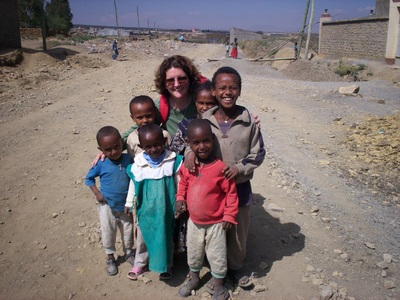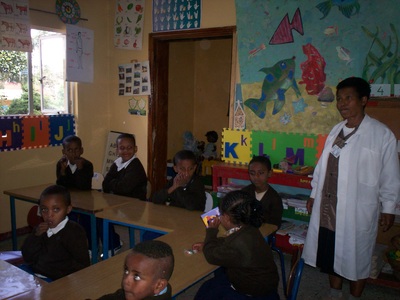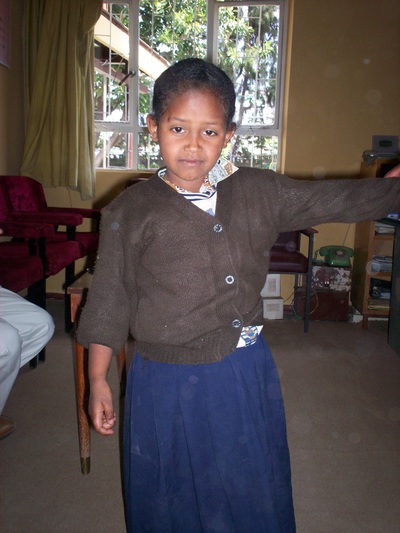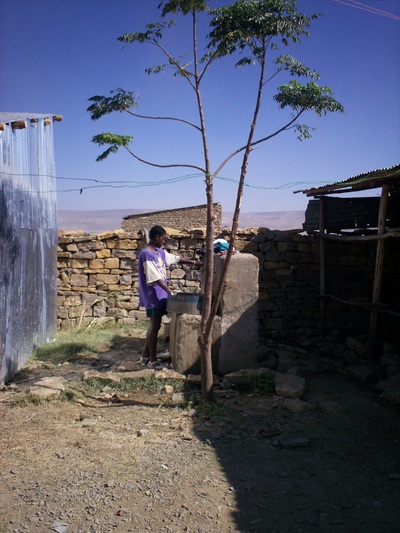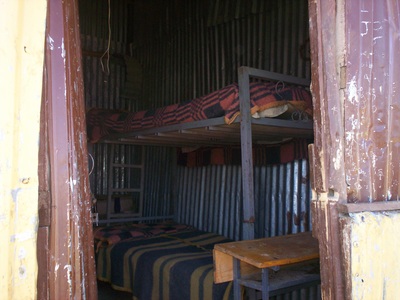|
View a video about this case
Download documents that explain what went wrong.(zip file of Case Entry number 207 and exhibits) Download documents (dkt#142 Affidavit) Dkt#283-final sentencing memo (I am going to prison because the Judge ruled that the adoptions done under the Non-Hague Process from Kazakhstan were Hague adoptions. These adoptions were done under the non-Hague i600 process. Crazy! 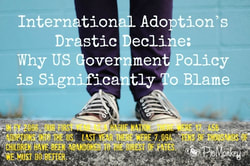
U.S. government policy is significantly to blame for the drastic decline in international adoption. The US government views international adoption as something to protect children from rather than a form of protection for children. Let me explain. Over the last five years the USG has taken a consistently negative approach on international adoption. The Department of State has adopted UNICEF’s policy which is that international adoption is to be shunned. It is DOS and UNICEF which advance the proposition that countries should reject international adoption as a method of family formation. When speaking at international forums such as the Fifth International Policy Conference on the African Child: Intercountry Adoption: Alternatives and Controversies (May 29-30, 2012;http://www.africanchildforum.org/ipc/), DOS and UNICEF speak with one voice, defining international adoption as cultural genocide, a sign of national failure or as a cover for fraud. As the USG has funneled billions of dollars of aid through UNICEF in the last five years, it is no surprise that developing countries are following this prescription. The USG has not usefully aided countries which wish to join the Hague Convention on Intercountry Adoption. DOS, our Central Authority, has not given the level of technical advice and training that could bring good programs into existence. Instead we criticize other countries’ efforts and find them unacceptable (The record of our interactions with Vietnam is relevant here.) We have not accorded appropriate respect to countries which have joined the Hague. Being a member of the Hague Convention should give foreign Central Authority decisions an analogous level of status as under the Uniform Child Custody Jurisdiction and Enforcement Act. DOS has taken the opposite approach, telling the Chinese what their laws mean, questioning the Ethiopians on their legal practices etc. Contrast the approach taken by DOS in Hague Abduction cases. DOS has not used timely and appropriate diplomacy with other international adoption partners. Chinese officials have repeated told stakeholders that DOS is the worst central authority with which they have programs. We could probably not have prevented the Russian ban on international adoption to the United States but had DOS taken a more active role during the negotiations over the U.S.-Russian Bilateral Adoption Agreement, that treaty would have been effective, with regulations promulgated when the Russian ban was enacted. This would have most likely meant that Russian children (including biological siblings of children previously adopted here) who were already near the completion of their adoptions, would have come home to their American families. DOS often uses fear of fraud as an explanation for its actions. Yet when USCIS examined over 2000 Ethiopian cases, its officials could find no case that should not have been approved. The Center for Adoption Policy has repeatedly asked DOS to require specific anti-fraud measures, with no results. It is almost as if DOS wants fraud to exist as an excuse to end all international adoption. Of course there are bad adoptions which call for specific bad actions to be ended and specific bad actors to be excluded from international adoption work. But instead of this proper focus, DOS is weaponizing these wrongful practices and targeting all international adoptions. Is there trafficking through adoption? There are a tiny number of documented cases and they are heinous. But the number is miniscule when compared to child trafficking done through illicit immigration schemes, and child snatching. DOS has repeatedly been dilatory and lax in its efforts as the Central Authority. There have been numerous times over the last five years when I have contacted DOS with news of changes in various countries’ programs. I glean my information from online research. Surely DOS could have better information if it so chose. This lack of information causes true pain and suffering to potential adoptive parents. Just as bad are the continued flawed processing and the consistent burying of adoption cases under reams of paper. No wonder we have seen the pool of potential adoptive parents shrink because families, understandably, shy away from international adoption when they learn of these unnecessary pitfalls. There is another way. The USG could take the opposite path and embrace international adoption as one legitimate method of family creation for unparented children. This is the goal a number of supporters are attempting to reach through the Children in Families First Act (CHIFF; S. 1530, H.R. 4143). As CHIFF directs: “All options for providing appropriate, protective, and permanent family care to children living without families must be considered concurrently and permanent solutions must be put in place as quickly as possible. Solutions include family preservation and reunification, kinship care, guardianship, domestic and Intercountry adoption, and other culturally acceptable forms of care that will result in appropriate, protective, and permanent family care. Preference should be given to options that optimize child best interests, which generally means options which provide children with fully protected legal status and parents with full legal status as parents, including full parental rights and responsibilities.” In practice this policy would direct DOS, USCIS and USAID to use both money and soft power influence to promote policy which puts the goal of children having families first, including the use of international adoption as a legitimate option for unparented children, as well as advocating for other available solutions. Our government would allocate our foreign aid to help countries create child-centered solutions which would have general similarities but also take account of national differences. We would provide monetary and technical assistance to countries that were joining the Hague Convention and we would measure progress to make sure that best practices were put into place in a timely fashion. With our Hague partners we would take the position that once you have joined the Hague club, we respect and accept your domestic procedures. The USG position would aim to get to yes, rather than find ever more creative ways of saying no. We would assure countries that in our multicultural nation, a child who comes here will be brought up with the greatest respect for her culture and will grow up as a citizen of the world. Nationalism has not increased in the last twenty years; one of the courses I taught at Yale (in my previous career as a diplomatic historian) traced the trajectory of nationalism, and I can vouch for that assertion. If you look at the number of immigrants who wish to come here and the lengths that they go to do so, one understands that nothing ideological stands in the way of the hope for a better life, for oneself, and for one’s children. Currently, despite falling birth rates, millions of orphans and vulnerable children are at risk around the world. The USG can and should work with governments and international bodies to create permanent solutions for these children without families. Take China, for example. In Guangzhou the local government this year set up a child safe haven box where parents could leave children they could not care for. In ninety days 260 children were left there, completely overwhelming officials who closed down the facility because they had no room in the city’s orphanages. On an annual rate, the number of children abandoned in that one safe haven in that one three month period is 45 percent of the entire number of adoptions from China to the United States in FY 2013. Under our new approach, the USG would, together with Chinese officials, ameliorate difficulties so that these children could find permanent, loving homes. In FY 2008, our first year as a Hague nation, there were 17, 456 adoptions into the US. Last year there were 7,094. Tens of thousands of children have been abandoned to the direst of fates. We must do better. Dr. Diane B. Kunz, Esq. is Executive Director of the Center for Adoption Policy, |
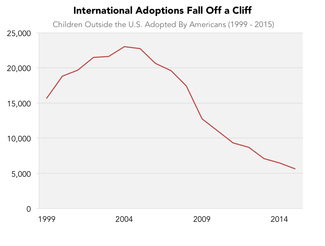
"It is almost as if DOS wants fraud to exist as an excuse to end all international adoption." Dr. Diane B. Kunz, Esq. is Executive Director of the Center for Adoption Policy, My case is about the Government's misunderstanding of laws that regulate adoptions in different counties OR is it about SHUTTING DOWN ALL INTERNATIONAL ADOPTIONS? The graph from above is from, "Why Did International Adoption Suddenly End?" By Ben Christopher https://priceonomics.com/why-did international-adoption-suddenly-end/ "Each year, thousands of Americans are victimized by prosecutors who overcharge, withhold key evidence, and engage in a myriad of other forms of professional misconduct. When these persons later seek redress, they encounter denial, resistance, and delays. More often than not, their efforts to receive even an apology end in futile exasperation." An Epidemic of Prosecutor Misconduct by the Center for Prosecutor Integrity +++++++++++++++++++++++++++++++ I WAS ARRESTED FEB. 11, 2014 AROUND 4:30 AM. THE GOVERNMENT ACCUSED THE NON-PROFIT ADOPTION AGENCY I WORKED FOR OF ADOPTION FRAUD. THE AGENCY WAS PLACING CHILDREN FROM ETHIOPIA. The indictment named 7 children who were adopted from 2006 to Jan. 2009. The Government arrested 3 of the employees of the non-profit. The Government only interviewed one of the employees and none of the board members of the agency. The agency had been working in Ethiopia since 2006 and placed over 300 children. The US embassy had issued visas, investigated all the cases and none of the agency's cases were ever turned down. ALL children placed were considered either full or part orphans and met the Embassy's requirements to be adopted. Even after the agency was closed down by the Government EVERY case that was in process was able to continue. Those families still adopted their children and no fraud was found. The Ethiopian Government investigated all the agency's cases and found nothing wrong with any of the cases. Ethiopia has not asked for the return of any child or stated that anything was wrong with any of IAG's cases. The U.S. Government accused the agency of not having a license to run an orphanage and care center. The FACT is that the agency was first licensed by the Ethiopian Government in 2006 and was licensed to have a foster care center and an orphanage. The Government told the Grand Jury that the agency was not licensed. The license was in the evidence provided by the Government. GOVERNMENT THEORY..... What happen is the U.S. Government took 2012 regulations and applied these regulations to 2006 to 2008 adoptions. The Government will not admit their mistakes. This case is part of the Dept. of State's goal to shut down international adoptions. Recent News stories about the "WAR ON INTERNATIONAL ADOPTION BY THE DEPT OF STATE. New Report Shows International Adoption Edging Closer To Extinction ttps://thefederalist.com/2019/04/02/new-report-shows-international-adoption-edging-closer-extinction/ ALL CHILDREN DESERVE A LOVING FAMILY. INTERNATIONAL ADOPTIONS ARE DOWN BY 82% WHY????? |
